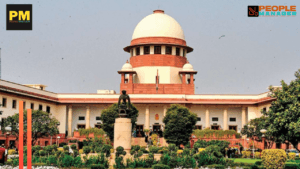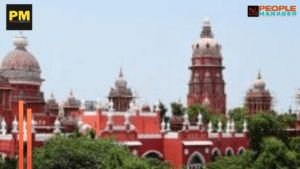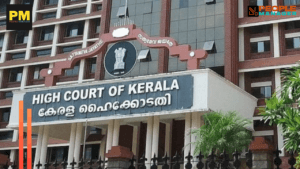Gratuity must be calculated from the date it became payable, not from the date of disbursement: Kerala High Court.
A single bench of Justice Murali Purushothaman Dismissing the petitioner’s claim, and observed: The gratuity is payable to an employee on the termination of his employment. The gratuity payable to an employee shall not exceed the maximum that is notified under the respective enactments as on the date on which the gratuity becomes payable.

Gratuity must be calculated from the date it became payable, not from the date of disbursement: Kerala High Court.
In the matter of K. Rajendra Prasad v. State Of Kerala, the Kerala High Court recently declared that the maximum amount of gratuity that may be paid under the Payment of Gratuity Act, 1972 must be computed from the day gratuity became payable, not from the date actual amount dispensed.
The Court was considering the plea of a retired Regional Engineer from the Kerala State Housing Board whose DCRG and last month pay was withheld due to audit objections. The Petitioner retired in the year 2002. He had earlier approached the Court, and the Secretary of the Board was directed to disburse the withheld amounts.
However, according to the petitioner, in light of the 2010 Amendment to the Payment of the Gratuity Act, 1972 under Section 4(3) he is entitled to a maximum gratuity of Rupees Ten Lakhs.
A single bench of Justice Murali Purushothaman Dismissing the petitioner’s claim, and observed:
“The gratuity is payable to an employee on the termination of his employment. The gratuity payable to an employee shall not exceed the maximum that is notified under the respective enactments as on the date on which the gratuity becomes payable. Even if it is assumed that the petitioner’s claim for gratuity was under the Payment of Gratuity Act, 1972, the maximum amount of gratuity payable under the said Act has to be determined with respect to the date on which the gratuity became payable and not on the date on which sanction was accorded for payment of DCRG or the date on which the amount was actually disbursed to him. Therefore, there is no merit in the contention of the petitioner that he is entitled to the maximum gratuity of Rs.10,00,000/- as per section 4(3) of the Payment of Gratuity Act, 1972, as amended by Act 15 of 2010.”
An employee is entitled to the gratuity upon termination of their job. The gratuity payable to an employee should not exceed the maximum notification amount under the relevant enactments as of the day the gratuity becomes payable.
Even if it is assumed that the petitioner’s claim for a gratuity fell under the Payment of Gratuity Act of 1972, the Court stated in its ruling that the maximum amount of gratuity payable under said Act must be determined concerning the date on which the gratuity became payable, not the date on which permission was granted for the payment of DCRG or the date on which the money was distributed to him.
The Kerala State Housing Board Employees‘ (Pension and other Retirement Benefits) Regulations, 1990, were referred to in the court’s decision. The petitioner is subject to these rules. The amount of gratuity to which an employee is entitled is specified in Regulation 4 of Rule 68 of Part III of the Kerala Service Rules. Section 14 of the Act, on the other hand, declares that the requirements of the Payment of Gratuity Act have precedence over all other legislation.
Because of the Act’s superseding provisions, the Court concluded that the Board’s employees may claim gratuity under section 4(3) of the Act. However, they are unable to use the KSR-eligible gratuity in doing so.
“He has to claim gratuity either under the Payment of Gratuity Act, 1972 or under the KSR. If he claims gratuity under the Payment of Gratuity Act, 1972, the amount will be determined under section 4 of the said Act, subject to the maximum amount notified under section 4 (3). If he claims under the KSR, the amount of DCRG will be determined under Rule 68 of the said Rules, subject to the maximum provided therein. He cannot have gratuity under the KSR with the ceiling limit payable under the Payment of Gratuity Act, 1972 and vice versa. “
To file a gratuity claim, the employee must use either the KSR or the Payment of Gratuity Act, 1972. If he submits a gratuity claim under the Payment of Gratuity Act of 1972, the amount will be determined under section 4 of the same Act, with the maximum amount stated under section 4(3).
According to the decision, if the petitioner claims gratuity under KSR, the DCRG amount must be determined under Rule 68 of the aforementioned Rules, subject to the maximum authorised therein. According to the Court, the ceiling limit of the Payment of Gratuity Act of 1972 and the gratuity cap of the KSR cannot be combined.
- Financial Crisis Cannot Compel an Employee to Work, Resignation Rejection Amount to Bonded Labour: Kerala High Court. - February 17, 2026
- Pernod Ricard India introduces Cheers VRorld, an industry-first VR-powered onboarding experience in the Alco-Bev sector - February 11, 2026
- Jio-bp Appoints Sareeta Bhatikar as Chief Human Resources Officer to Steer Next Phase of Growth - February 11, 2026









